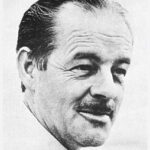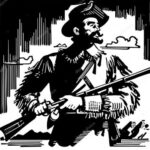Clicking on the following links or images will take you to the action/adventure/espionage book collections covered in this section:
Commentary:
The history of this genre goes back a very long way, almost to the beginning of recorded fiction. Almost every ancient culture has mythology and folklore which contain a healthy dose of action/adventure tales. Some good examples of this are such as The Odyssey and Le Morte d’Arthur. which were composed and became popular even before the invention of the printing press. Some of the first novels ever written also belong to this genre: Don Quixote, Robinson Crusoe and Gulliver’s Travels.
In the 19th century, there was a significant increase in the number of books written in the broad category of adventure stories. Many of these works contained stories of political intrigue within countries or royal households; these were the forerunners of the popular espionage novels of the 20th century. Actually, the espionage novel made its debut way back in 1821 with The Spy, written by James Fenimore Cooper. This was the first popular work of fiction by Cooper and it was the book that launched his literary career. However, despite the novel’s success, the espionage genre did not really take off until the beginning of the 20th century.
The “adventure” category in the 19th century covered several different genres: (a) traditional adventure stories, (b) biographical novels or travelogues, (c) historical fiction, and (d) mythology and folklore. Among the masters of this genre were Sir Walter Scott, Alexandre Dumas and Robert Louis Stevenson. In the latter part of the 19th century, science fiction also started to become popular, and many Sci-Fi novels included a healthy dose of adventure. Two giants of the Sci-Fi genre were Jules Verne and H. G. Wells. (The former also wrote some non-Sci-Fi adventure stories such as the delightful Around the World in Eighty Days.)
Starting in the 20th century, adventure and espionage began to be more closely interlinked in many novels. These types of books became hugely popular, and this trend accelerated with the start of the Cold War. Some authors such as John le Carré even specialized in this genre. After the Cold War ended, the popularity of spy novels started to decline, but these have been replaced by action/suspense novels, often featuring conspirators or serial killers engaged in a cat-and-mouse game with an upholder of the law. Some authors who specialize in the latter are Dan Brown, David Baldacci and James Patterson.
Two of my favorite writers in the adventure genre are Alistair MacLean and Ian Fleming, whom I enjoyed reading during my formative years in the ’60s and ’70s. This is why I have separated the complete works by these two authors into their own sections.
Alistair MacLean was one of the greatest adventure thriller writers of all time, especially in the first half of his career. He came up with very creative plots and his novels usually contained tough, heroic protagonists who pushed themselves to their endurance limits, memorable villains who were smart and sophisticated, and extensive use of the sea and other dangerous environments as settings. Unlike many other thriller writers, Alistair MacLean wrote in immaculate English and his prose was magnificent. Many of MacLean’s novels were made into movies, of which the best were The Guns of Navarone, Where Eagles Dare and Ice Station Zebra.
Ian Fleming created the iconic figure of James Bond (also known by his code name 007) and wrote many popular spy/adventure stories featuring Bond in the 1950s and 1960s. The James Bond character caught fire in the public eye, and his popularity increased even further in the 1960s with his entry into the world of cinema. Starting with Dr. No in 1962, there has been a string of successful Bond films with spectacular action scenes and memorable characters, and the Bond character is now more successful than ever before. The James Bond franchise is now firmly entrenched in popular culture and will remain so for a long time to come.
One final note. There is often overlap between the mystery/crime genre and the adventure/espionage genre, and sometimes a given book may not fit neatly into one category or the other. When such cases arise, I have used my judgment to assign a book in a particular category, though I may assign other books by the same author to the alternate category. (In a very small number of cases, I have also listed a book in two different categories.) I realize that this assignment could be subjective; however, I believe the vast majority of books covered here have been properly assigned to the correct category.







